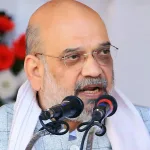India has not only varied ethnicities but variety of languages. It is a literary fact that almost after every twenty kilometres same language within a region shows variation. Kashmiri spoken in Srinagar city and in Anantnag may have different words for same object. Same happens with Dogri. Dogri spoken in Ram Nagar may have different words to symbolise same objects in Jammu’s Basohli. Not only that the regional languages spoken by our ancestors have gone through many changes. New words have crept in. Replacing the archaic ones. It has different reasons. With the passage of time and the adoption of English as the main language for teaching various disciplines in schools has brought this change. No doubt it has opened new avenues for the youth but at the same time it has restricted their internalisation of the indigenous cultures. It can be gauged from the fact that in Kashmir there have been era’s that laid emphasis on various languages. Sanskrit was the lingua franca of the people of Kashmir from ancient times. All the scriptures peculiar to Kashmir from the Tantric Shaiva texts to the literature of the polyglot’s and polymath’s like Kshmendra were written in Sanskrit. But penchant to gather knowledge from all sides and due to change of rulers Kashmir also adopted Persian as the language of the elites. Kashmir’s complete history cannot be known if we don’t have understanding of both Sanskrit and Persian. As it will give the students an access to the primary resources and interpret them without any error. If the knowledge of Sanskrit can make students learn and analyse their history ;both social and political in the five Rajatarangini’s and Neelmat Puran then Persian understanding can make them decode the turmoil and turbulence prevalent in Kashmir when Baharistan-e-Shahi and Tofat -ul- Ahbab were written. Not only that it will allow students to discover many hidden facts about Kashmir that have always haunted the Kashmir watchers. The National Education Policy (NEP) that has started changing the landscape of the educational system in India will surely take care of this issue. It is in this connection that we must analyse the statement made by the External affairs Minister, S. Jaishankar, who was on a two day visit to Iran recently. In a joint press conference with his Iranian counterpart Amir-Abdollahian he said that the Government of India has decided to include Farsi (Persian) as one of the nine classical languages of India in New Education Policy(NEP).The motive is to highlight the cultural, literary and linguistic connections between India and Iran. This is indeed a significant move. National Education Policy (NEP) must look both inward and outward. It will enable our students and scholars to explore the literary exchanges and develop new frameworks of research. When it comes to Jammu and Kashmir, we must urge the administration that a comprehensive focus should be laid on teaching our students both vernaculars and the classical languages that includes Sanskrit and Persian. Even old official records have not been deciphered as people are not well versed with these languages. At the individual level or at the level of some groups there has been an effort to preserve this heritage but it has not yielded the desired results. It needs a thrust at the level of union territory administration of Jammu and Kashmir. We can learn from the vision of our ancestors and rulers in the earlier times. It goes to the credit of Maharaja Pratap Singh who on the advice of the great Tantric Trika Shaiva Acharya of Kashmir, Maha Maheshwaracharya Swami Ram Ji Maharaj got the entire corpus of Kashmir’s Sanskrit Agamic literature documented in a series known as Kashmir Sanskrit Series (KSS).It is the only authentic source of Sanskrit literature produced in Kashmir and available to scholars today. It has opened new vistas of research. We have to emulate the same spirit in formulating the policy for documenting of our classical languages and literature today to preserve them for research and well-being of all.
Languages in New Education Policy(NEP)
Sign Up For Daily Newsletter
Be keep up! Get the latest breaking news delivered straight to your inbox.
By signing up, you agree to our Terms of Use and acknowledge the data practices in our Privacy Policy. You may unsubscribe at any time.
Leave a Comment Leave a Comment
Stay Connected
Latest News
Recent Posts
- Inclement Weather: Sgr-Jmu, other highways closed for traffic
- Union Home Minister Amit Shah felicitates personnel involved in Operation Mahadev
- Trump’s order on 50% tariffs for Indian imports now in force
- Leh Airport’s runway closed due to adverse weather conditions: Air India
- As Jhelum swells, Admin says closely monitoring situation





